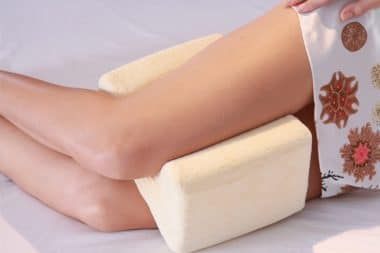Some think that because medication is available over the counter, no risks are involved with using them. But even over-the-counter drugs can cause a problem if the correct dose is not taken or the medications is taken too often or for too long of a time period. A lot of people don’t think twice about taking over-the-counter medication to treat a variety of symptoms. Before seeing a doctor, many take non-prescription drugs for their conditions. However, some OTC drugs can cause health problems and even death if taken in the wrong dosage or in the wrong combination with other medications, including prescription meds.
Deadly Overdoses
Acetaminophen — the active ingredient in Tylenol, which makes an array of products to treat arthritis, headaches, sinus congestion and cold and flu symptoms, was associated with about 360 deaths nationwide in 2016. In some countries, about 60,000 people a year are hospitalized for acetaminophen overdose complications, according to a studies. Using more than the recommended amount of acetaminophen over a period of several days rather than taking a large single dose at one time or in one day accounts for the vast majority of accidental overdoses. Studies have found that 52 percent of 935 patients who suffered an acetaminophen overdose between the years 1998 and 2013 took too much of the substance unintentionally.
Naproxen and Paracetamol are two forms of acetaminophen. They are used to relieve pain from various conditions including headache, muscle aches, tendonitis, dental pain, and menstrual cramps. It also reduces pain, swelling, and joint stiffness caused by arthritis, bursitis, and gout attacks. Taking naproxen and paracetamol should be done after reading all directions on the product package and after consulting a certified doctor. If you are taking this drug “as needed”, remember that pain medications work best if they are used at the first signs of pain. If you wait until the pain has worsened, the medication may not work as well or not at all.
Antihistamines Dangerous for Infants
Other OTC medications can also have harmful effects if taken in the incorrect dosage or in the wrong combination with other medications. Parents and other caregivers of infants should avoid giving antihistamines to infants to get them to be quiet or go to sleep. Adults should never provide antihistamines to children under age 2, since they can cause cardiac arrhythmia, seizures and hallucinations. Parents should consult a pharmacist when giving any new medication to infants.
Bad Combinations
Although over-the-counter medicines are designed to be low-dose and low-impact on the body, mixing them can lead to overdose. Other non-prescription medications can cause health problems if taken in the wrong combination with other drugs or with herbal remedies. If someone takes aspirin with a nonsteroidal anti-inflammatory drug, it could cause stomach upset or, in some cases, internal bleeding.
Epsom Salts
Perfect for a soothing baths, epsom salts are also used as a natural laxative because they contain magnesium sulfate. Dissolving epsom salts in water to use as a laxative is approved but epsom salts can cause some serious side effects. A high dose can rupture your intestinal wall, cause infection and/or react dangerously to other ingredients you ingest.
Strategies to Taking OTC Products Safely
- Read the labels carefully. Note the directions regarding dosage and whether the medication should not be used if you have a certain condition and whether it can be taken in combination with other drugs.
- Talk to your doctor or pharmacist. If you have any doubt about the safety of a medication, ask your family doctor or local pharmacist.
- Don’t hesitate to ask for help from a pharmacist other than your own. People don’t always buy their OTC drugs from the store where their pharmacist is located. If you buy non-prescription drugs at a store where you don’t know the pharmacist, don’t be shy about asking for assistance.
- Don’t leave anything out. When consulting with your doctor or pharmacist, tell him or her every drug, herbal supplement or medicated cream. The more information your health care professional has, the better he/she will be able to assist you.
To prevent your stash of cold medicine being used for recreational purposes, don’t stock up, monitor the amount you have, and don’t allow children to keep these drugs in their bedrooms or backpacks. Don’t ignore the dangers of over-the-counter medications and talk to your doctor to make sure you aren’t conflicting medication. Follow the directions before taking any sort of medication, and be sure to keep an eye on your children to make sure they aren’t abusing these potentially dangerous drugs.







Reply